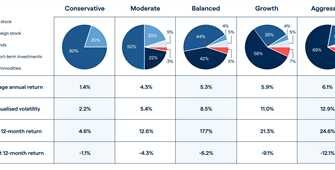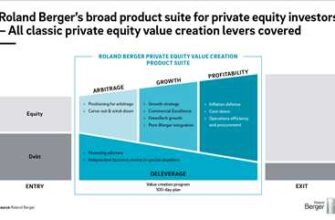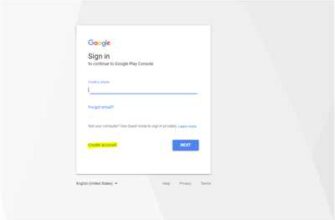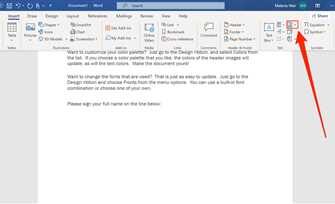
Creating and following a personal budget is an essential part of achieving your financial goals. Whether you want to save for a down payment on a house, pay off debt, or simply have more control over your finances, budgeting can help you get there. Many people mistakenly believe that budgeting is difficult and restrictive, but it doesn’t have to be. In fact, it can be easy and empowering.
So, why is budgeting so important? Well, without a budget, it’s easy to overspend and find yourself in debt. By creating a budget, you can track your income and expenses, and make sure you’re living within your means. This will help you avoid unnecessary debt and leave more money for the things that are truly important to you.
So, how do you develop a personal budget? The process involves a few simple steps, such as gathering your financial statements, identifying your sources of income, listing your expenses, and setting goals. Start by collecting your bank statements, credit card statements, and any other documents that show your income and expenses for the past few months. This will give you a clear picture of your financial health and help you identify patterns and areas where you can cut back.
Next, determine your average monthly income. This includes your salary, any side hustle income, and any other sources of money you receive on a regular basis. Once you know how much money you have coming in each month, you can start listing your expenses. Be sure to include all your bills, such as rent/mortgage, utilities, groceries, transportation, and any other regular expenses you have.
Now it’s time to set your financial goals. What do you want to achieve with your budget? Are you looking to pay off debt, save for a vacation, or build an emergency fund? Set specific goals for each category and be realistic about what you can achieve in a given timeframe. This will give you something to work towards and help you stay motivated.
Once you have your goals in place, make a plan to achieve them. This may involve cutting back on certain expenses, finding ways to increase your income, or both. Look for areas where you can trim your budget, such as eating out less or shopping for groceries at a cheaper store. Small changes can add up to big savings over time.
Remember, budgeting is a process, and it may take some time to get it right. Be patient with yourself and don’t get discouraged if you make mistakes along the way. The important thing is to keep going and make adjustments as needed. Over time, you’ll develop a budget that works for you and helps you achieve your financial goals.
In conclusion,

developing a personal budget is a crucial step towards financial health and stability. By tracking your income and expenses, setting goals, and making a plan, you can take control of your finances and achieve the future you want. Budgeting doesn’t have to be restrictive or boring – it can actually give you more freedom and peace of mind. So why wait? Start budgeting today and see the difference it can make in your life.
Make a Personal Budget in 6 Steps

Creating and managing a personal budget is an important part of your financial health. It allows you to plan for the future and achieve your financial goals. Budgeting is actually easier than you might think, and in just 6 steps, you can get started on the process of making your own personal budget.
- Calculate your income: The first step in creating a budget is to determine how much money you have coming in each month. This includes your average monthly salary, any additional sources of income, such as freelancing or rental income, and any other sources of financial support you may have.
- Track your expenses: Next, you need to know where your money is going. Keep track of your bills, such as rent or mortgage payments, utilities, groceries, and any other regular expenses you have. This will give you an idea of how much money you are spending each month.
- Create categories: Once you have a clear understanding of your income and expenses, it’s time to create categories for your budget. Divide your expenses into different categories, such as housing, transportation, food, entertainment, and savings. This will help you allocate your income effectively.
- Set financial goals: Determine what you want to achieve with your budget. Do you want to pay off debt, save for a vacation, or build up your emergency fund? Setting specific financial goals will give you something to work towards and keep you motivated.
- Allocate your income: Now that you have your categories and goals, it’s time to allocate your income. Assign a percentage or dollar amount to each category based on your priorities. Make sure to leave some room for unexpected expenses or emergencies.
- Track and adjust: Once you have your budget in place, it’s important to track your progress and make adjustments as needed. Monitor your expenses and savings each month and see if you’re on track to meet your goals. If not, make changes to your budget to ensure you stay on the right path.
In conclusion, creating a personal budget is a crucial step in managing your finances and achieving your financial goals. By following these 6 steps, you can make budgeting a more easy and manageable process. Remember, a budget is not meant to restrict you, but rather to give you the freedom to spend and save without worrying about your financial future.
Why do you need a budget
Creating a personal budget is an important part of financial planning. It helps you to achieve your goals and make the most out of your income. Without a budget, it’s easy to overspend and leave yourself in debt or without enough savings.
Budgeting allows you to track your income and expenses, and it gives you a clear plan for where your money is going every month. By having a budget, you can allocate money for essential expenses such as groceries and bills, but also for things you want, such as vacations or new clothes.
A budget helps you to make smarter financial decisions. When you know how much money you have and what your expenses are, you can avoid unnecessary debt by taking control of your spending. It also allows you to plan for the future and save for important goals, such as buying a house or starting a family.
One of the key benefits of budgeting is that it helps you to track your progress towards your financial goals. You can see where your money is going and make adjustments if necessary. By analyzing your budget and financial statements, you can identify areas where you can cut costs or find ways to increase your income.
By developing a budget, you can also improve your overall financial health. It reduces stress by giving you a clear picture of your financial situation and allows you to take control of your money. With a budget, you can avoid the anxiety that comes with living paycheck to paycheck or not being able to afford unexpected expenses.
Getting started with budgeting is actually quite easy. You just need to follow a few simple steps. First, determine your income. Calculate how much money you make each month, including your salary and any additional sources of income. Then, list all your expenses, such as rent, utilities, groceries, and debt payments.
Next, set your financial goals. Decide what you want to achieve with your money, such as saving for a vacation or paying off credit card debt. With your goals in mind, create a budget that allocates money towards these priorities. Make sure to give yourself some room for discretionary spending as well.
Throughout the budgeting process, it’s important to track your expenses and review your budget regularly. You can use tools such as spreadsheets or mobile apps to make this process easier. By staying aware of your spending habits and making adjustments as needed, you can stay on track to achieve your financial goals.
In conclusion, creating a personal budget is essential for anyone who wants to take control of their finances and achieve their goals. It provides a clear plan for your income and expenses, helps you make smarter financial decisions, and improves your overall financial health. Without a budget, it’s easy to overspend and leave yourself in debt. So, don’t delay and start budgeting now to secure a better financial future.
What Is a Personal Budget
A personal budget is a process that helps you plan and track your income and expenses. It’s like a roadmap for your finances, giving you a clear picture of where your money is coming from and where it’s going. By creating and following a personal budget, you can take control of your financial situation and work towards achieving your goals.
When you develop a personal budget, the first step is to gather all your income and expenses statements. This includes your paychecks, credit card statements, and bills. It’s important to leave no card unturned, as every expense should be accounted for. By doing this, you’ll have a clear understanding of how much money you have coming in and how much you’re spending.
The next part of the budgeting process is to set goals. What do you want to achieve with your finances? Do you want to save more money for the future? Do you want to pay off debt? By setting specific goals, you can tailor your budget to support these aspirations.
Once you have your goals in place, the next step is to allocate your income to different categories such as groceries, bills, health, and savings. This is where you’ll determine how much you can actually spend each month on different expenses. It’s important to be realistic and not overspend.
After you’ve created your budget, the important part is to stick to it. This may require some discipline and making sacrifices, but it’s essential for financial success. By following your budget, you can avoid unnecessary debt and ensure that you’re saving enough for the future.
There are many resources available to help you get started with budgeting, such as budgeting apps and online tools. These can make the process much easier and help you track your expenses on the go.
In conclusion, a personal budget is a plan for your financial future. It’s a way to take control of your income and expenses, and make sure you’re using your money wisely. By following the steps outlined in this article, you can develop a budget that works for you and helps you achieve your financial goals.
Conclusion
In conclusion, developing a personal budget is essential for your financial health. By following these 6 steps, you can plan and achieve your financial goals without getting into debt. Budgeting allows you to understand where your money is going, how much income you have, and where there may be areas to cut back on expenses. It is important to track your spending, review your bank statements and bills, and make adjustments as needed.
By creating a budget, you can allocate funds for expenses such as groceries, bills, and savings. This helps you to avoid overspending and ensure that you have enough money to cover your necessities.
With a personal budget, you can also save for the future. Whether you want to save for retirement, a down payment on a house, or a vacation, having a budget will help you allocate the necessary funds each month.
Remember that budgeting is a process, and it may take time to get started and make it a habit. However, once you do, you’ll find that it’s actually easy to stick to a budget and achieve your financial goals.
Overall, budgeting is a powerful tool that can help you take control of your finances and achieve financial stability. Use these steps and resources to create your own personal budget and start working towards a healthier financial future.
Get Started
In order to develop a personal budget, you need to start by assessing your current financial situation. Take a look at your income and expenses for the past few months to determine your average monthly income and expenses. Gather any financial statements, such as bank statements and credit card statements, to help you get a clear picture of where your money is actually going.
Once you have a good understanding of your income and expenses, you can start to set goals for your budget. Think about what you want to achieve with your personal finances. Do you want to save more money? Pay off debt? Have more money for leisure activities? It’s important to know why you’re creating a budget and what you want to accomplish.
Next, make a list of all your sources of income. This can include your salary, freelance work, rental income, or any other sources of money that you receive on a regular basis. Once you have a clear picture of your income, you can move on to the next step.
The next step is to track your expenses. Make a list of all your monthly bills and expenses, such as rent or mortgage payments, utility bills, groceries, and transportation costs. It’s important to include all your expenses, no matter how small. By tracking your expenses, you’ll be able to see where your money is going and identify areas where you can make adjustments.
After you have tracked your expenses, you’ll need to determine how much you want to save each month. Saving money is an important part of personal finance, as it can provide you with financial security and help you achieve your future goals. The amount you save will depend on your income and expenses, but try to aim for at least 10-20% of your income.
Once you have a clear picture of your income, expenses, and savings goals, you can start to create your budget. This will involve allocating a certain amount of money to each expense category, such as housing, transportation, groceries, and entertainment. Be sure to leave some room for unexpected expenses or emergencies.
It’s important to remember that creating a budget is a ongoing process. As your income or expenses change, you’ll need to adjust your budget accordingly. Regularly review your budget and make any necessary changes to ensure that you’re staying on track with your financial goals.
By following these steps and sticking to your budget, you can take control of your personal finances and achieve financial health. Budgeting may seem challenging at first, but with practice and discipline, you can achieve your financial goals and live a more financially secure and stress-free life.
Sources
When it comes to developing a personal budget, there are many sources you can use to help you along the way. These sources can give you more information, tips, and advice on why and how to budget effectively. Here are 6 sources to get you started:
- Financial Statements: Take a look at your past few months’ worth of bank statements and credit card statements. This will give you an average of what you’ve been spending your money on.
- Your Bills: Look at your monthly bills and make note of how much you’re paying for each one. This will help you understand where your money is going and what expenses you can potentially cut back on.
- Your Income: Evaluating how much money you’re bringing in each month is an important part of the budgeting process. Knowing your income will allow you to allocate your funds accordingly.
- Your Savings: If you have any savings or investments, take a look at those as well. This can give you an idea of how much you should be setting aside each month for future goals.
- Your Goals: Before you start budgeting, think about your financial goals. What do you want to achieve in the short-term and long-term? This will give you a clear direction when it comes to allocating your funds.
- Financial Health: Assess your current financial health and any debts you may have. Understanding your financial situation is crucial for creating a realistic budget that works for you.
In conclusion, budgeting can actually be an easy and straightforward process if you know where to look for the right information. These sources will help you get started and give you the tools you need to achieve your financial goals without leaving you in debt or without enough money to support yourself in the future.









